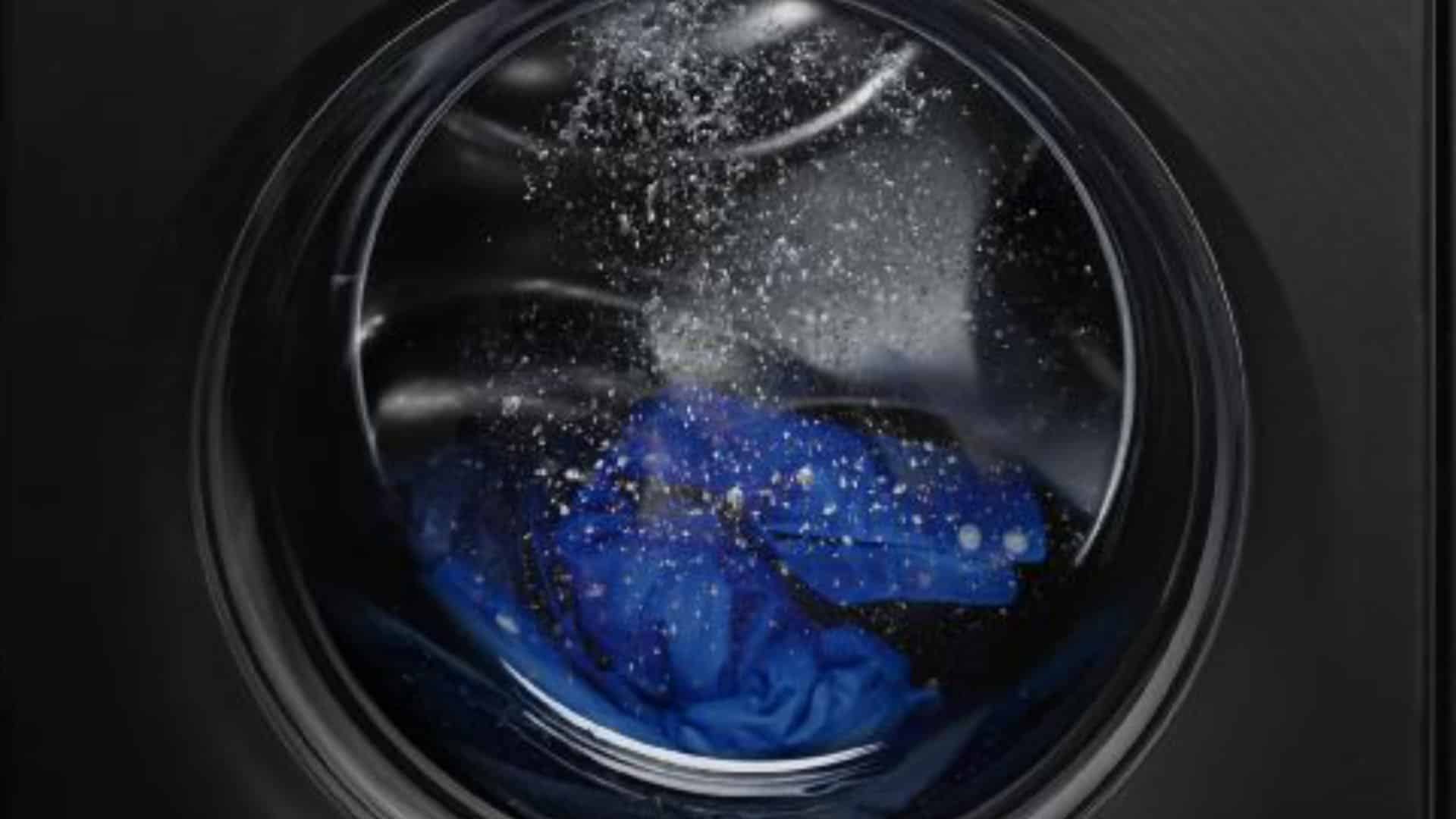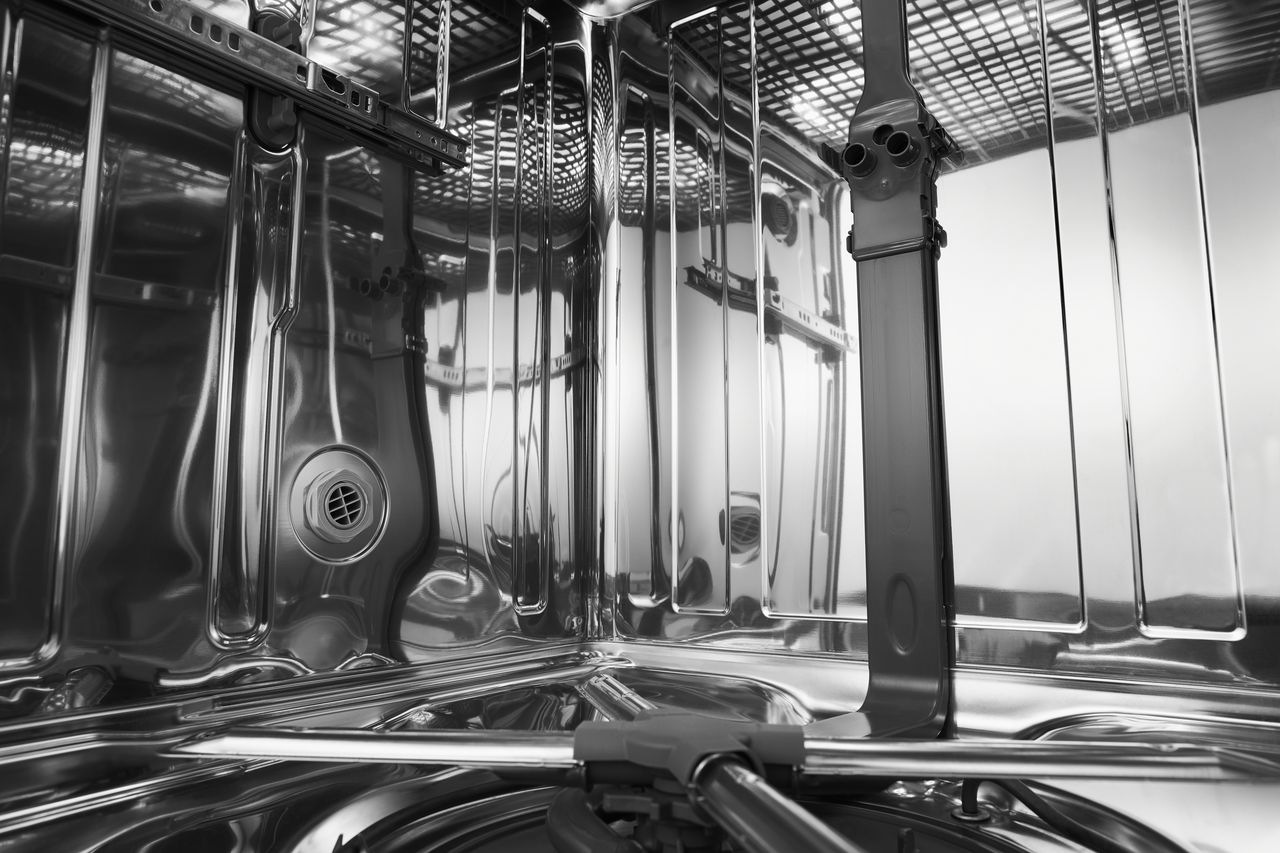
Dishwashers are one of the greatest additions ever installed in a kitchen. However, they do not make dishes a complete non-issue. To get sparkling clean dishes at the end of the wash cycle, you need to prep, fill, and run your dishwasher correctly. The dishwasher will do most of the work but you’ll need to work with it. This is why it’s important to understand your dishwasher and detect whether a problem is maintenance-related or a part in need of repairs.
If dishes in your dishwasher are not coming out clean, there are many possible reasons. It could be the water, the soap, the sprayer mechanisms, or the dishes themselves. It might be how the dishes are arranged or a lack of water pressure to clean them. To find the answer, you’ll need to examine the factors present and test your solutions one at a time.
Dried or Cooked-On Grime
The first assumption to make is that the dishes have very stubborn grime when they go in the dishwasher. Dried-on food and, worse, cooked-on food can be more than hot high-velocity soapy water can handle in a short period of time. You may be noticing that certain foods remain on dishes or that your cooking pans are not getting clean in the dishwasher. The answer is to help that grime leave the dishes.
The good news is that you don’t always have to scrub dry food off of dishes. Keep a sink full of warm, soapy water to soap dishes for a while before they go in the dishwasher. This will soften the dried or cooked-on food and make it easier for you to quickly load and run the dishwasher with clean results.
Cool Wash Water
The water you are washing with might not be hot enough. This is a surprisingly common problem with dishwashers. To clean food off of dishes, you need to melt the starches and other leavings off the surface. This is best done with hot water, which is more effective at dissolving foods than cool water. If the water in your water heater isn’t getting hot enough, then your dishwasher performance might suffer.
Open up your water heater and make sure that the temperature is set (and is reaching) 120 F. This will ensure your dishwashing water is always hot enough for the task. It will also improve the quality of your showers, baths, and laundry.
Angled Dishes Blocking Water
Another option is the way your dishwasher is arranged. Every dishwasher model has an arrangement of sprayer nozzles, arms, and possibly a telescoping dispenser. If dishes block other dishes from the water spray, the blocked dishes won’t get clean. Review the way you are loading the dishwasher and the way other members of the household might be loading dishes. Ensure that each thing is arranged to provide water access to things above or the side.
Insufficient Soap or Wrong Detergent
The next potential problem is your dish detergent. The soap you use is not necessarily right for your dishwasher, your tap water, or your dishes. It’s important to buy detergent with rinse aid if you live with hard water. Make sure the detergent is a type that works well with your model of dishwasher. If there is copious soap residue, consider trying a thinner dishwasher soap.
Mineral Clogs in Sprayer Nozzles
Water residue is mineral traces left behind when the water dries or passes an aperture. This residue is known as scale, and it can build up inside the sprayer nozzles of your dishwasher. The sprayer arms are well-known for constantly clogging the tiny holes that spray high-pressured water onto the dishes. If your dishes aren’t getting clean, investigate the sprayer nozzles with a paper clip and punch any clear that have a white or crystalline buildup.
Faulty Float Valve and Not Enough Water
The float valve sits at the bottom of your dishwasher and tells the appliance when it has enough water. A faulty float valve will default to providing too little water instead of too much. This means that your dishwasher might not be washing with enough water or water pressure to get the dishes clean. Investigate your float valve and make sure it is providing the dishwasher with the right amount of water per cycle.
Failing Inlet Valve
The inlet valve controls when water is allowed to flow into the dishwasher from the house water lines. If the inlet valve fails, then it might become stuck closed and not operat the cycles correctly. A failing inlet valve will often click or rattle as it stops functioning. If your inlet valve stops working, it will need to be accessed and replaced.
Extremely Hard Water
Hard water is normal tap water that includes an unusually high level of chalky minerals like magnesium and calcium. These minerals are harmless to drink, but they can have a negative effect on appliances, as well as skin, hair, and laundry. Hard water forms scale residue much faster and more aggressively than normal tap water, and can actually damage appliances if allowed to create build-up inside water lines and components. Vinegar melts scale left by hard water, but any home with extremely hard water is also going to have more dishwasher problems than usual.
Drain or Valve Clog
Clogs are a very good place to look if your dishes are not getting clean in the dishwasher. Check the filter basket to make sure nothing blocking like plastic or a lettuce leaf has completely stopped the drain. Then check the drain for any blockage after the basket. Then check the drain valve that might have clogged or jammed with washed-off food. Clear all drains and also run your garbage disposal with cool water running in the sink. This can help to clear the kitchen drain system.
Not Enough Rinse Aid or Vinegar
Finally, add rinse aid to your dishes if the problem is white spots or chalky residue. Rinse aid is a formula designed to fight the residue of hard water and vinegar is a good at-home substitution to quickly fight scale buildup or give your dishes an extra shine.
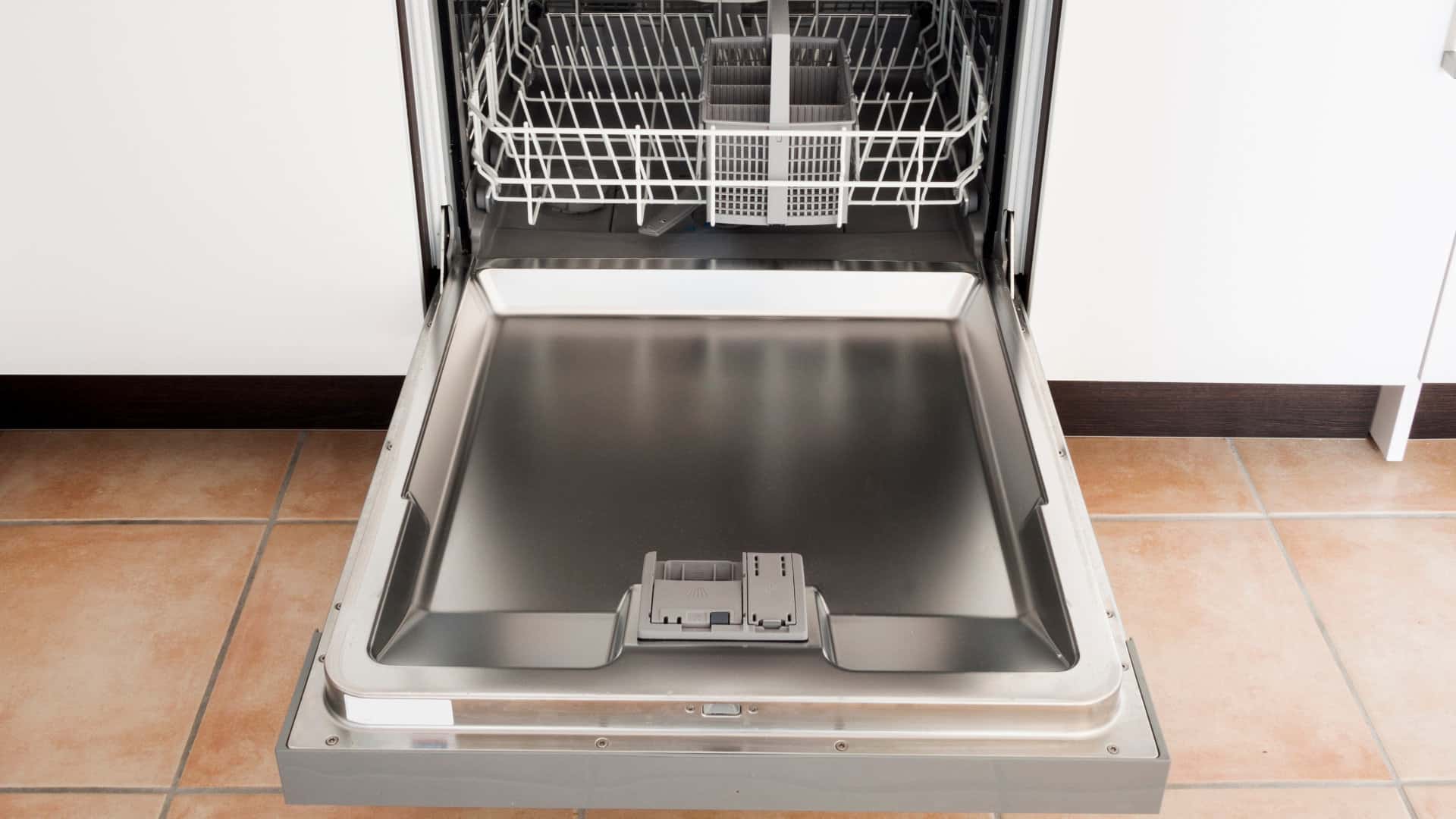
How to Resolve the Bosch Dishwasher E15 Error Code
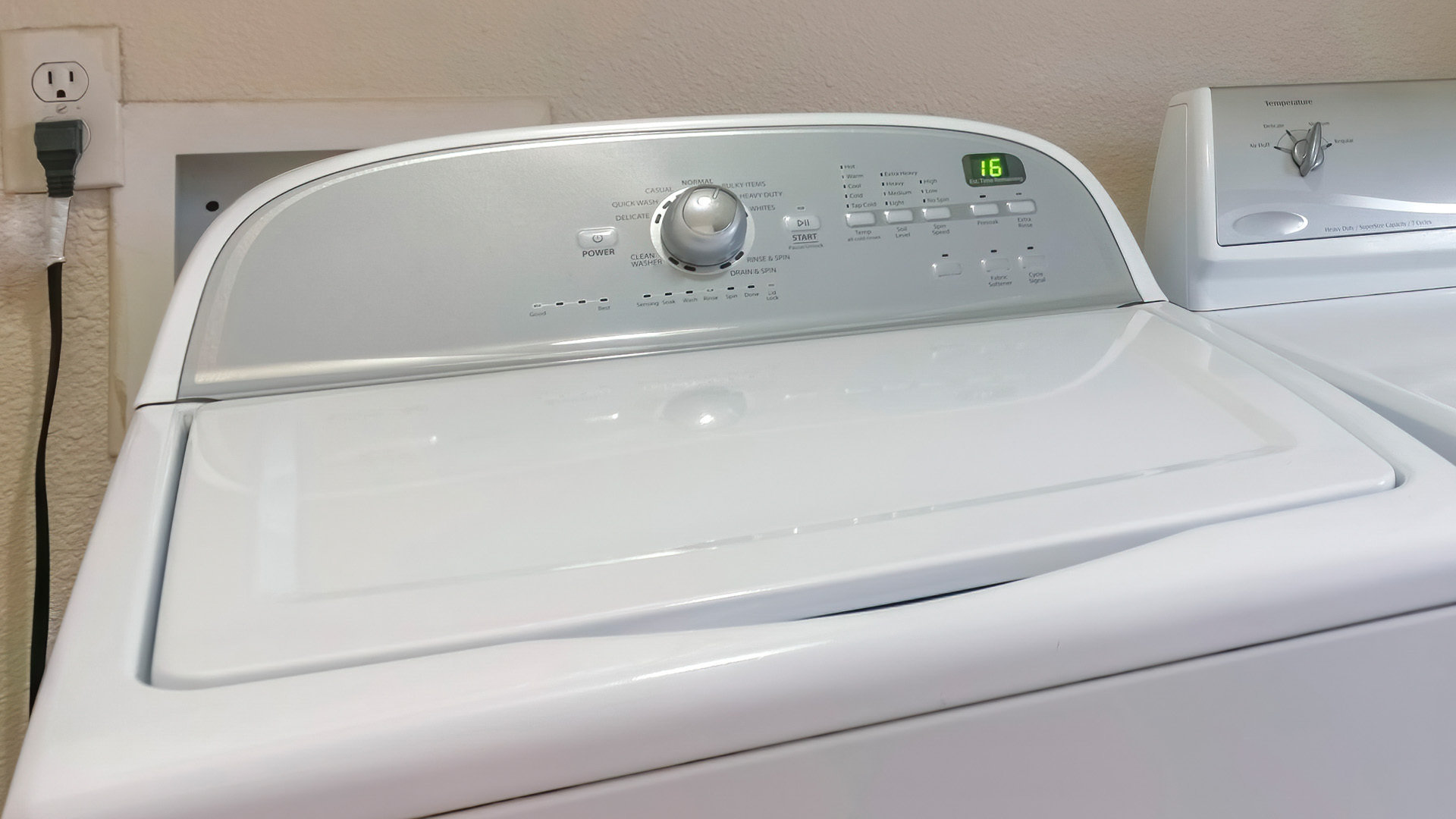
How to Balance a Washing Machine (5 Quick Tips)
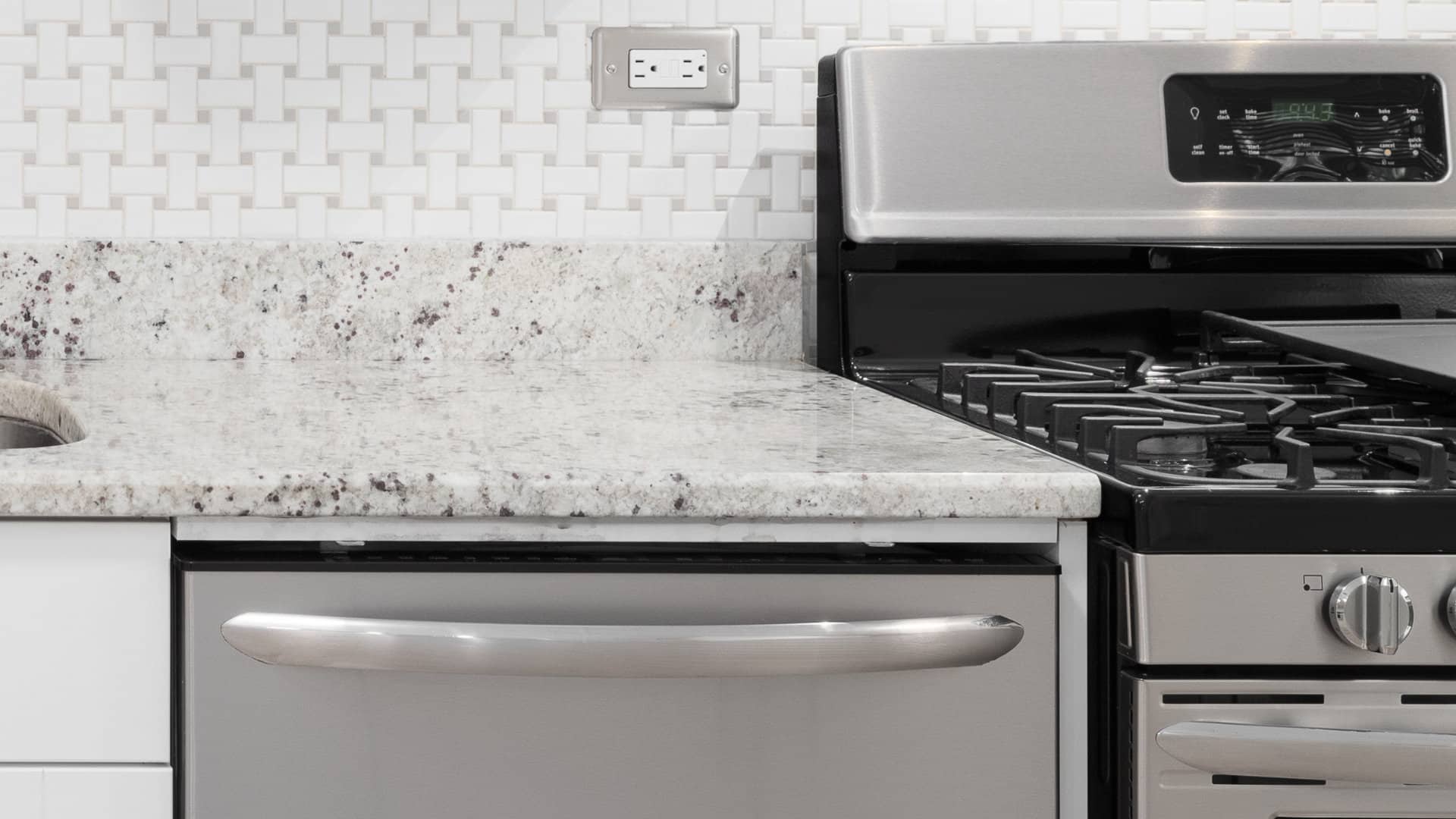
Solutions for a Frigidaire Gas Stove Oven Failure
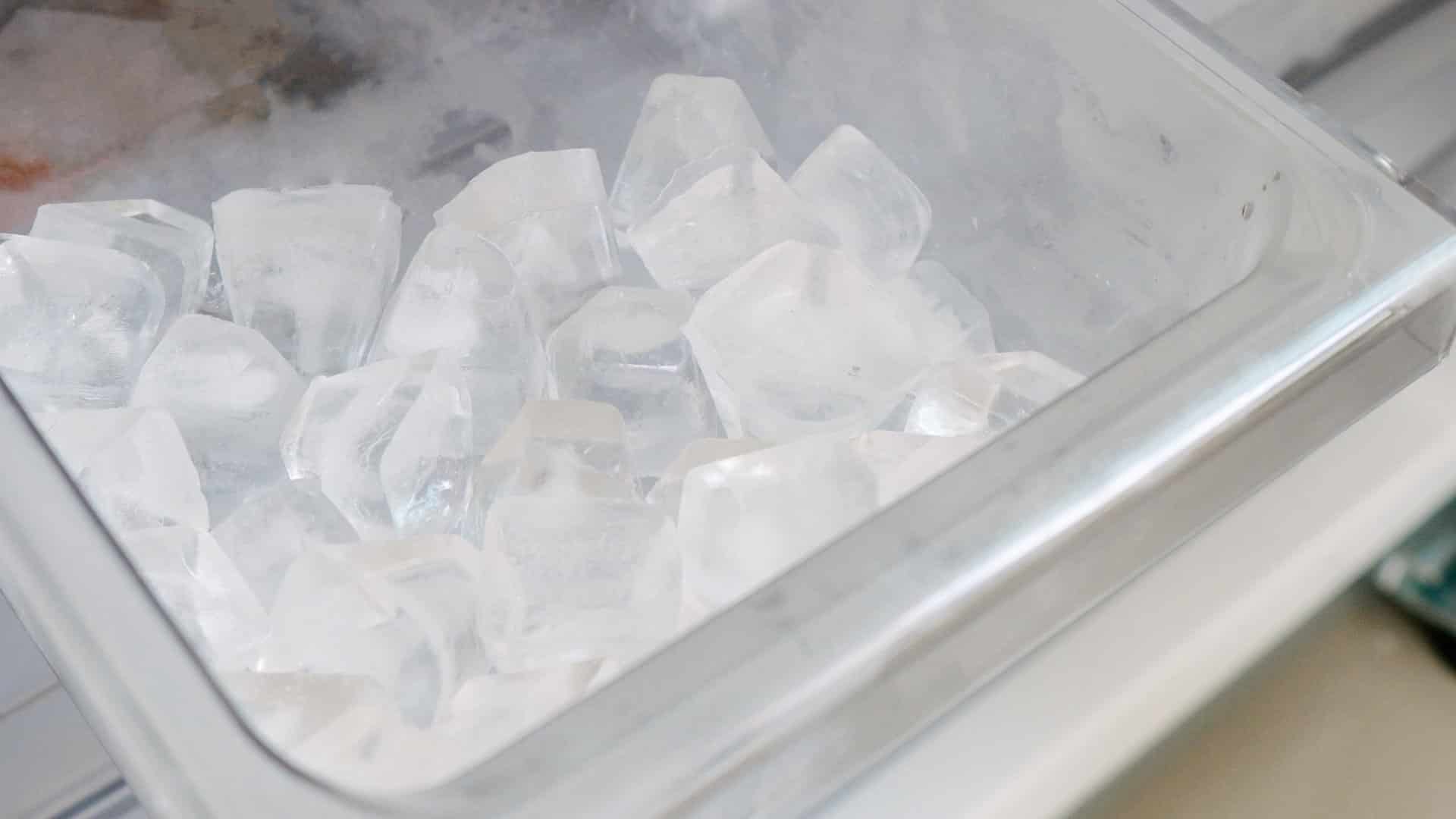
How to Fix a GE Ice Maker Not Working (Quick Fixes)
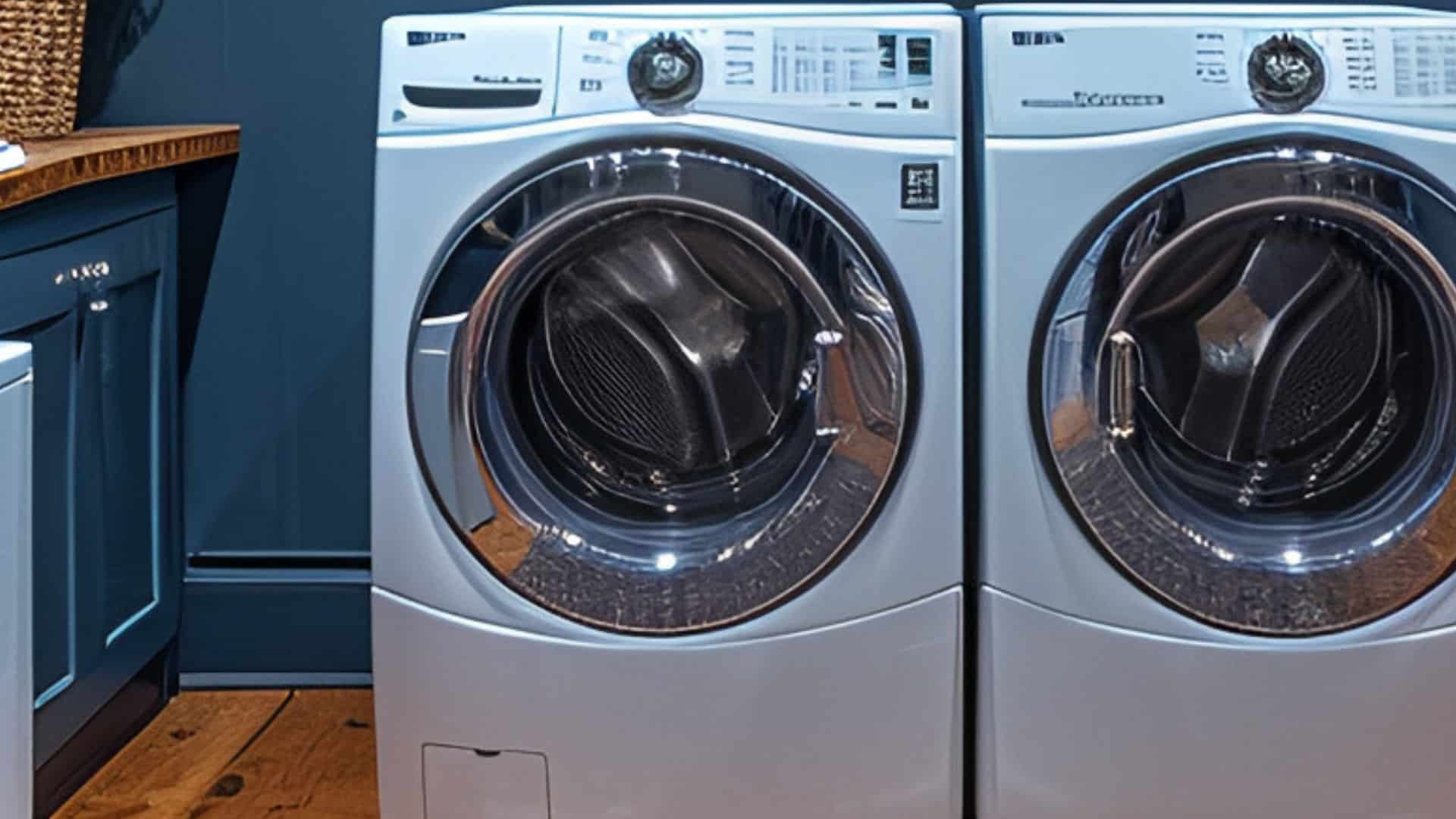
How to Fix the Electrolux Dryer Error Code E64
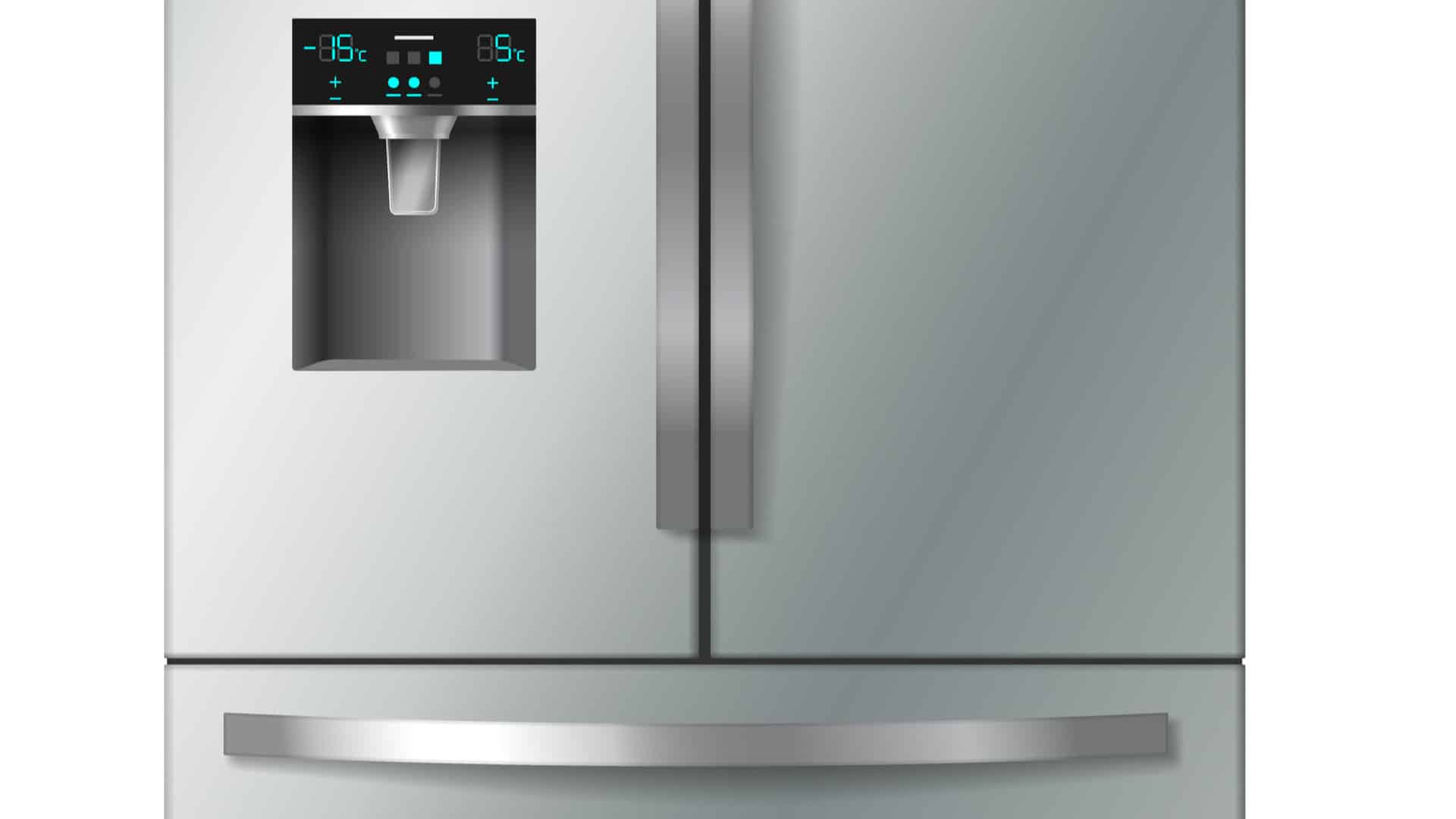
Is Your Whirlpool Ice Maker Not Working? Here’s Why
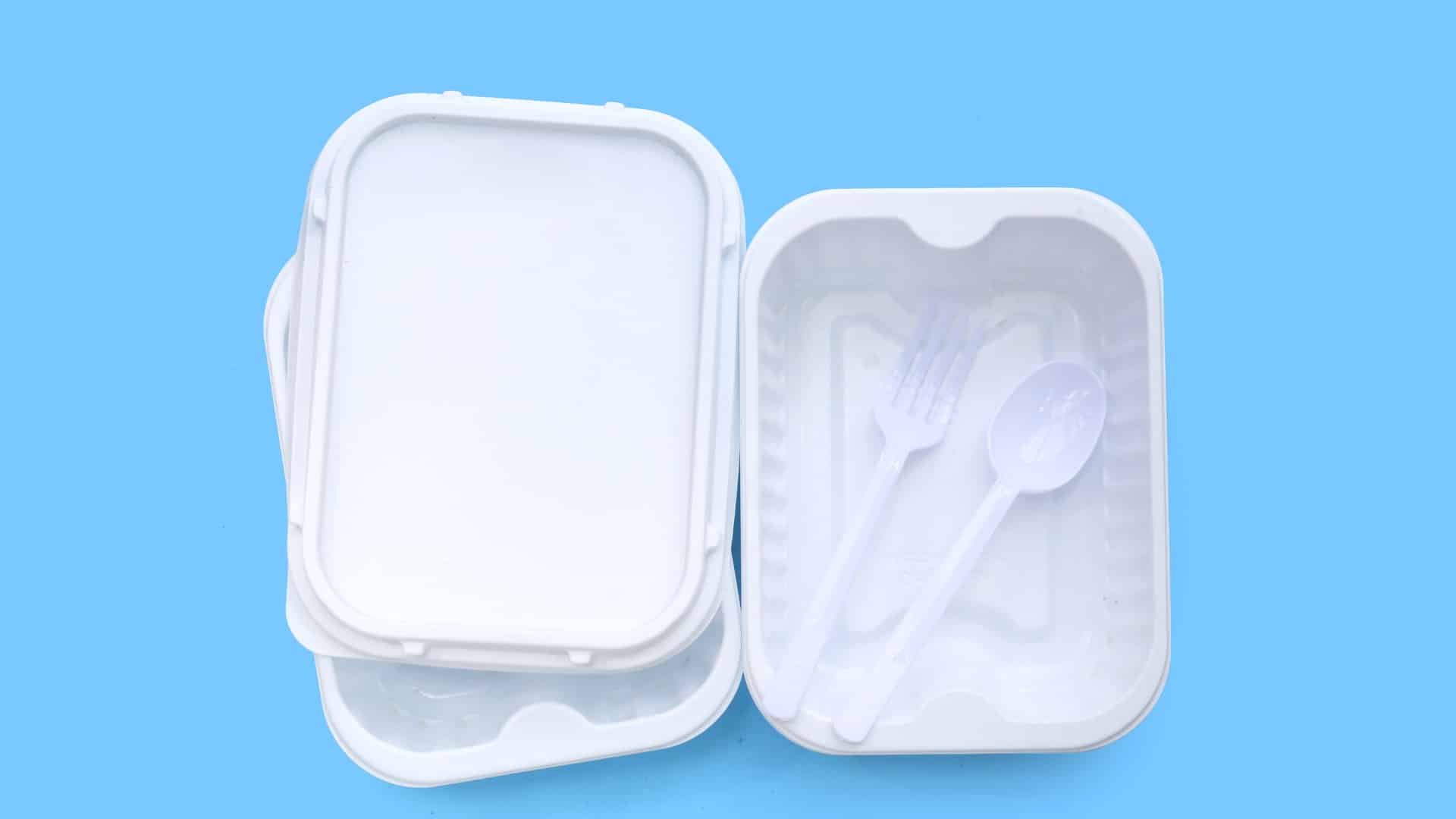
Can Styrofoam Be Microwaved? (Safety and Risks)
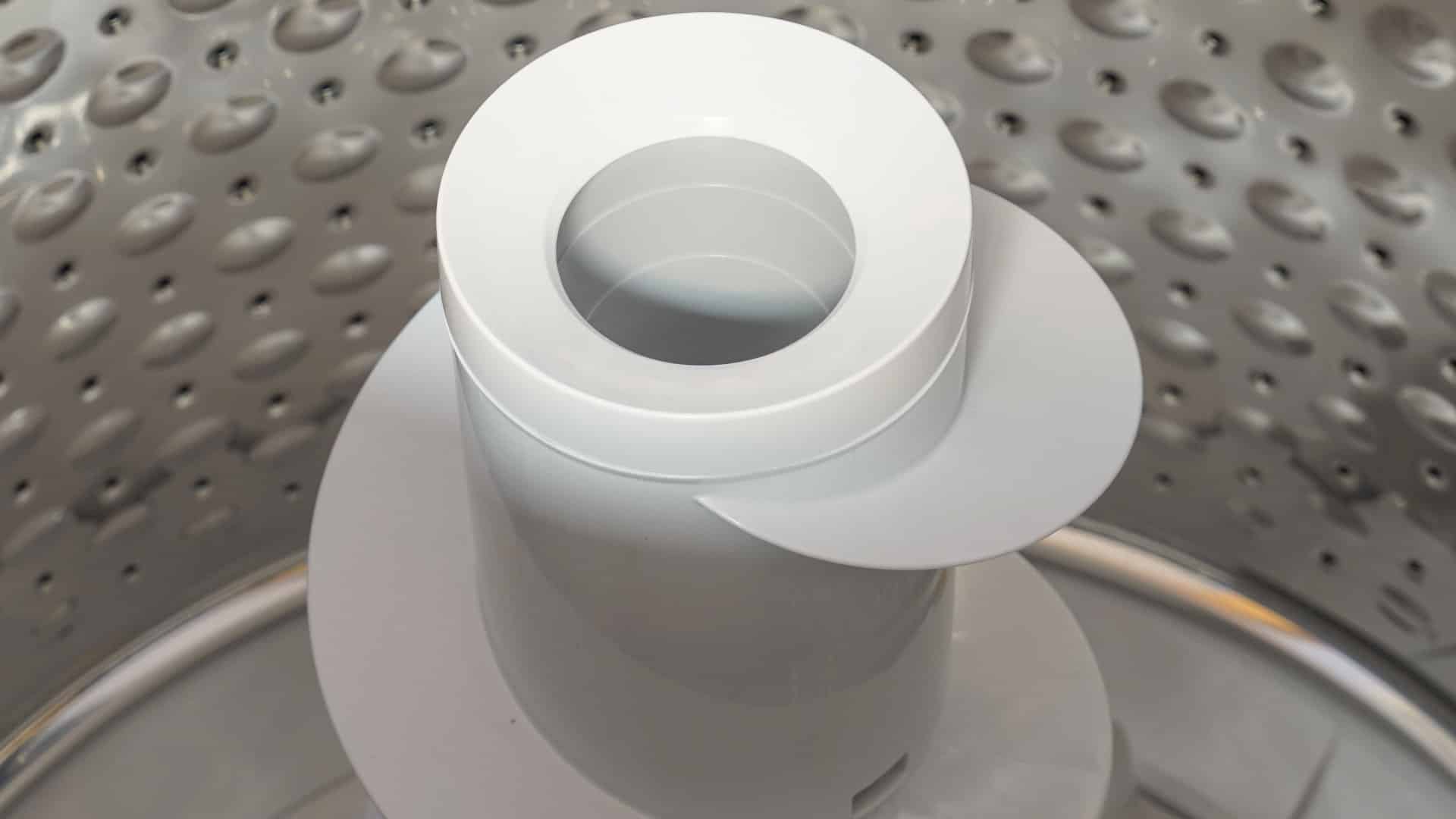
Agitator vs. No Agitator Washer: What’s Best?
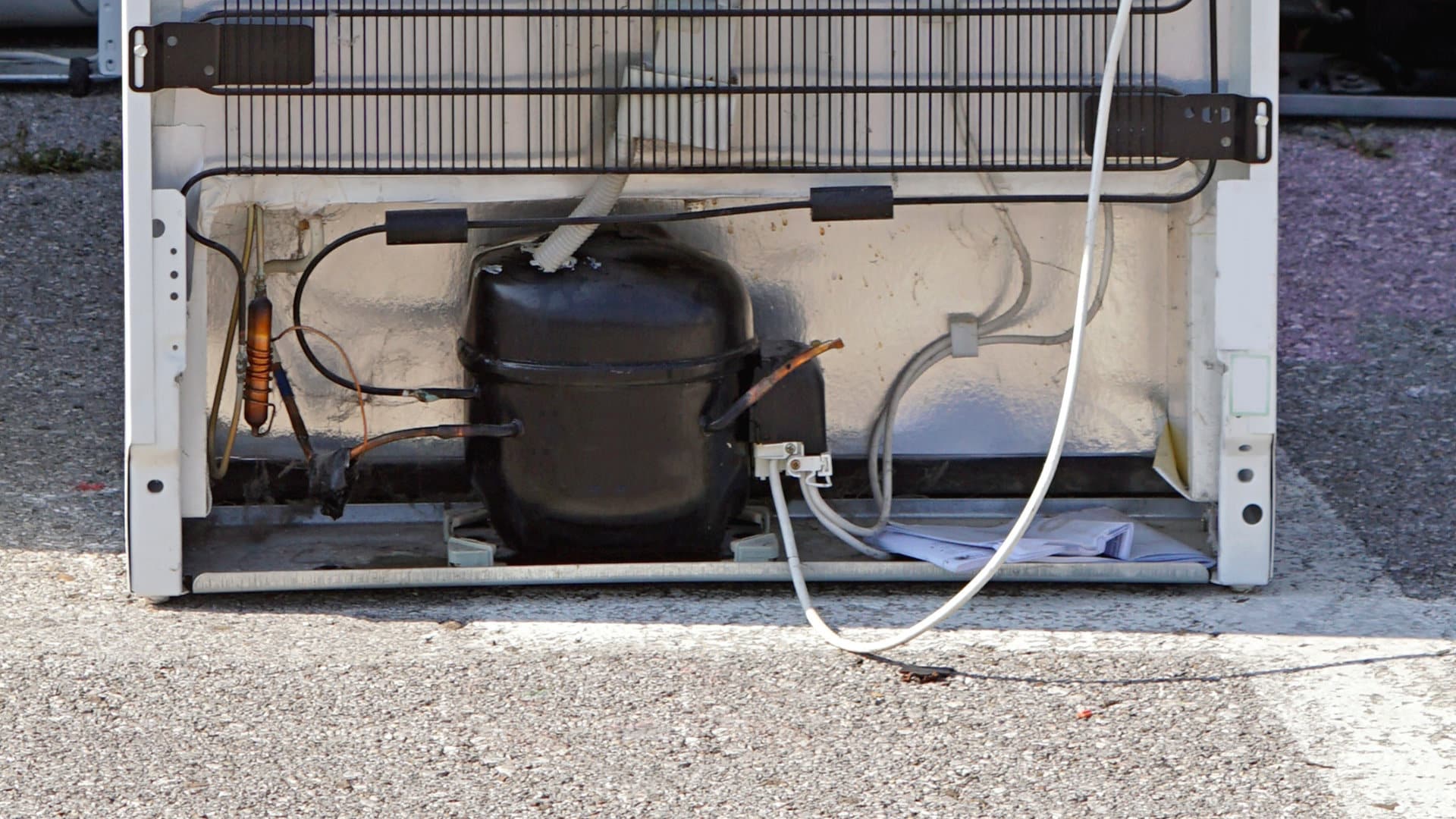
Why Is Your Refrigerator Compressor Hot? (6 Potential Causes)
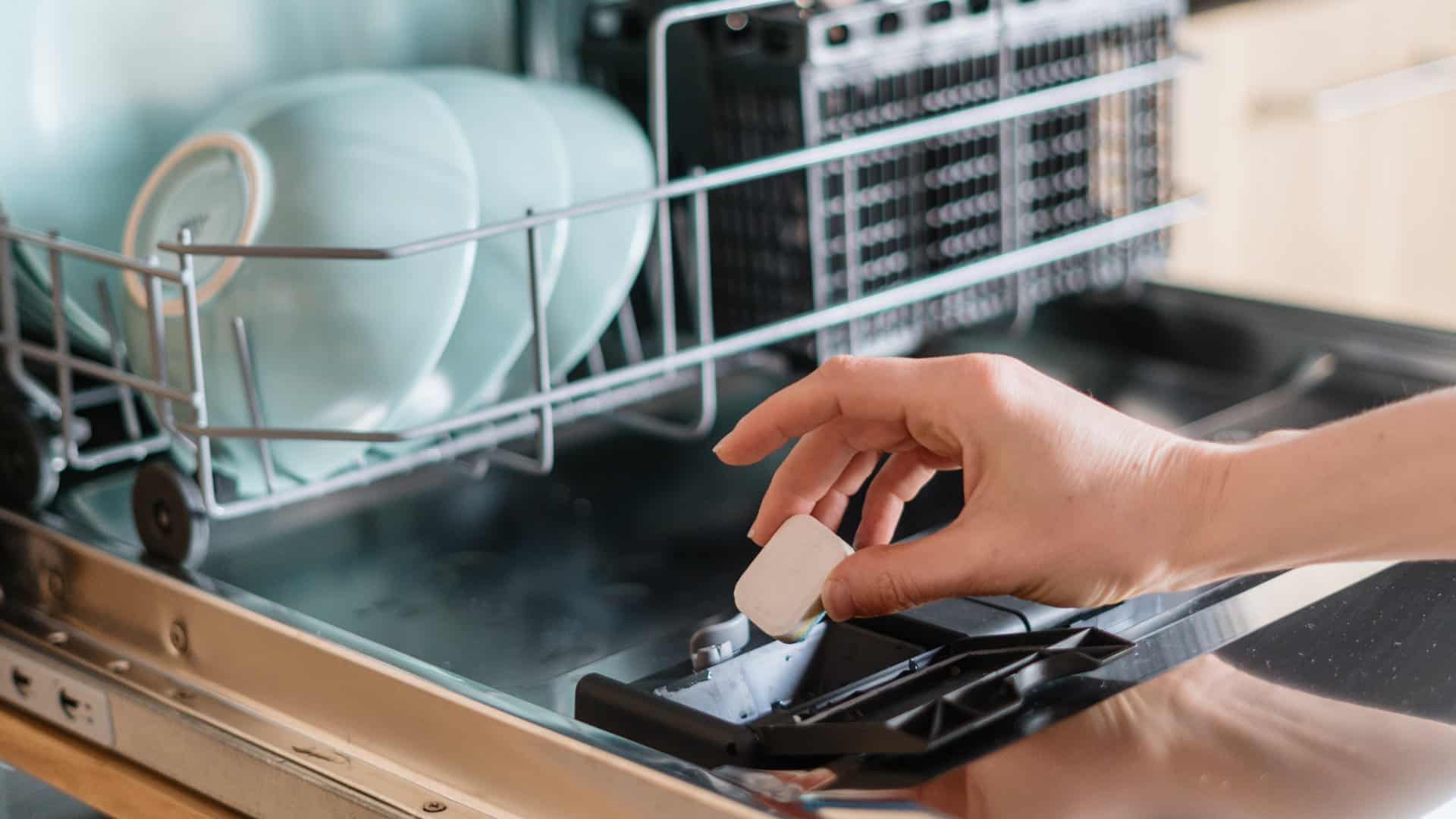
How to Use Dishwasher Pods
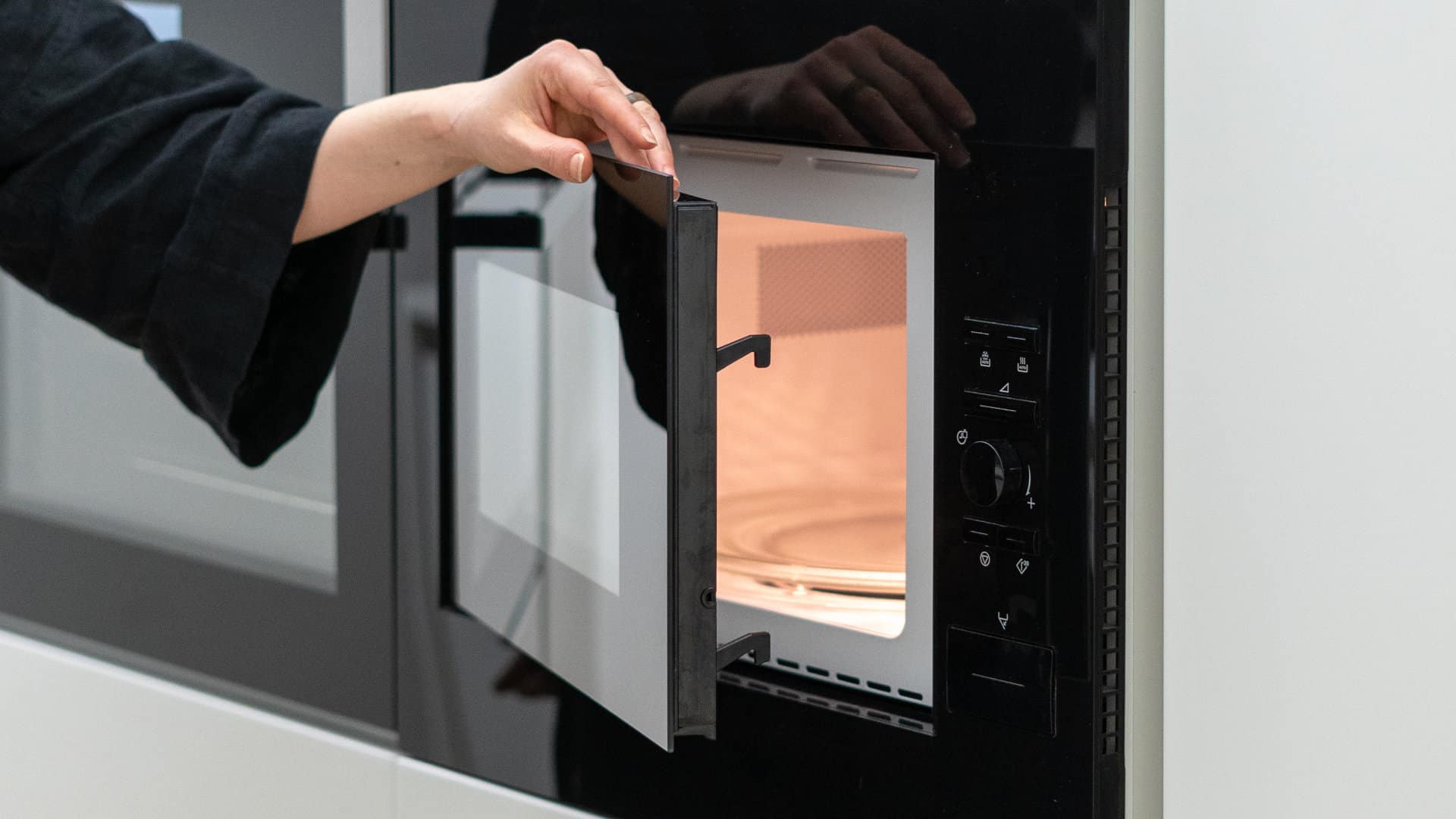
How to Unlock Your Microwave
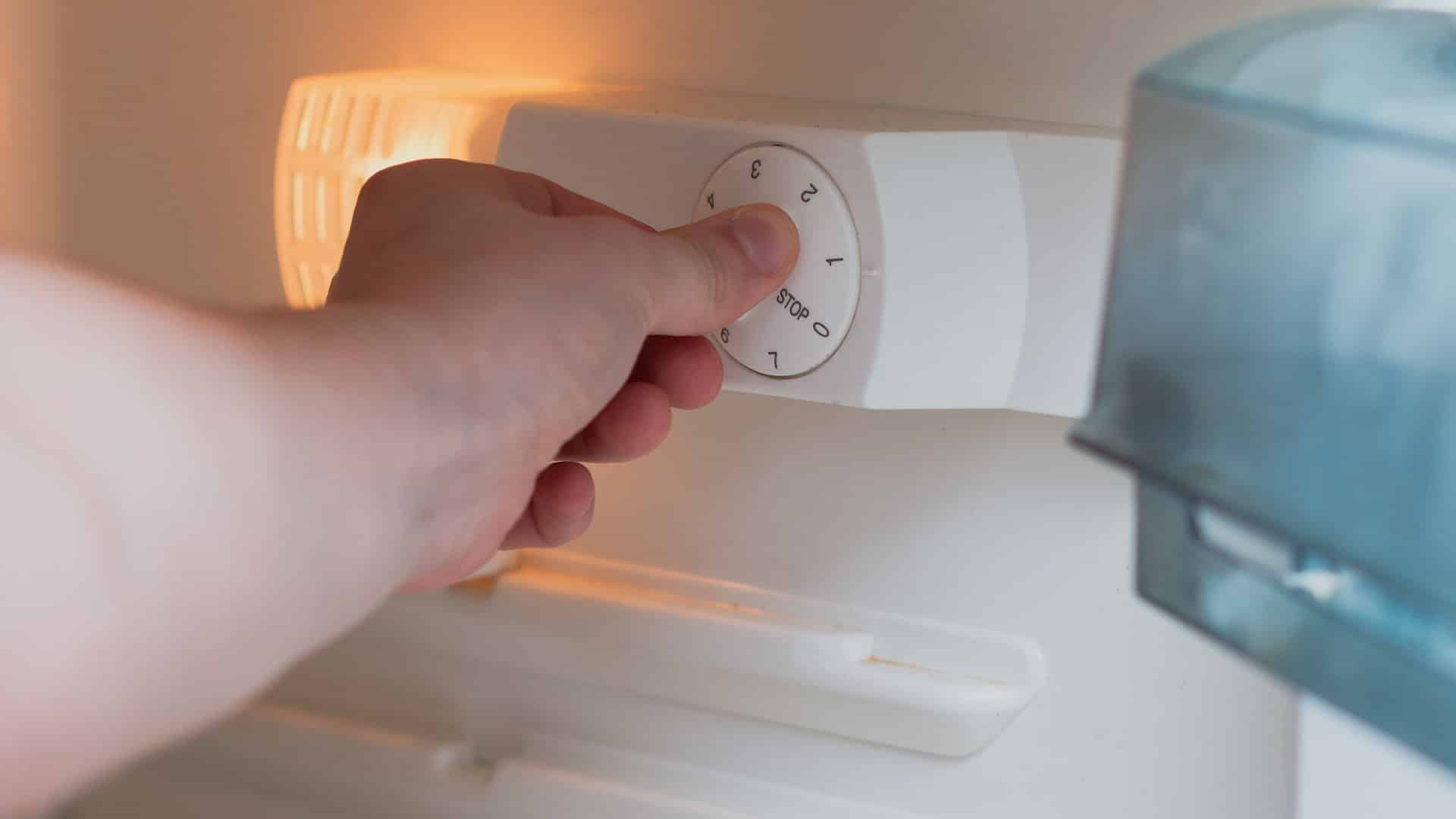
How Many Watts Does a Refrigerator Use?
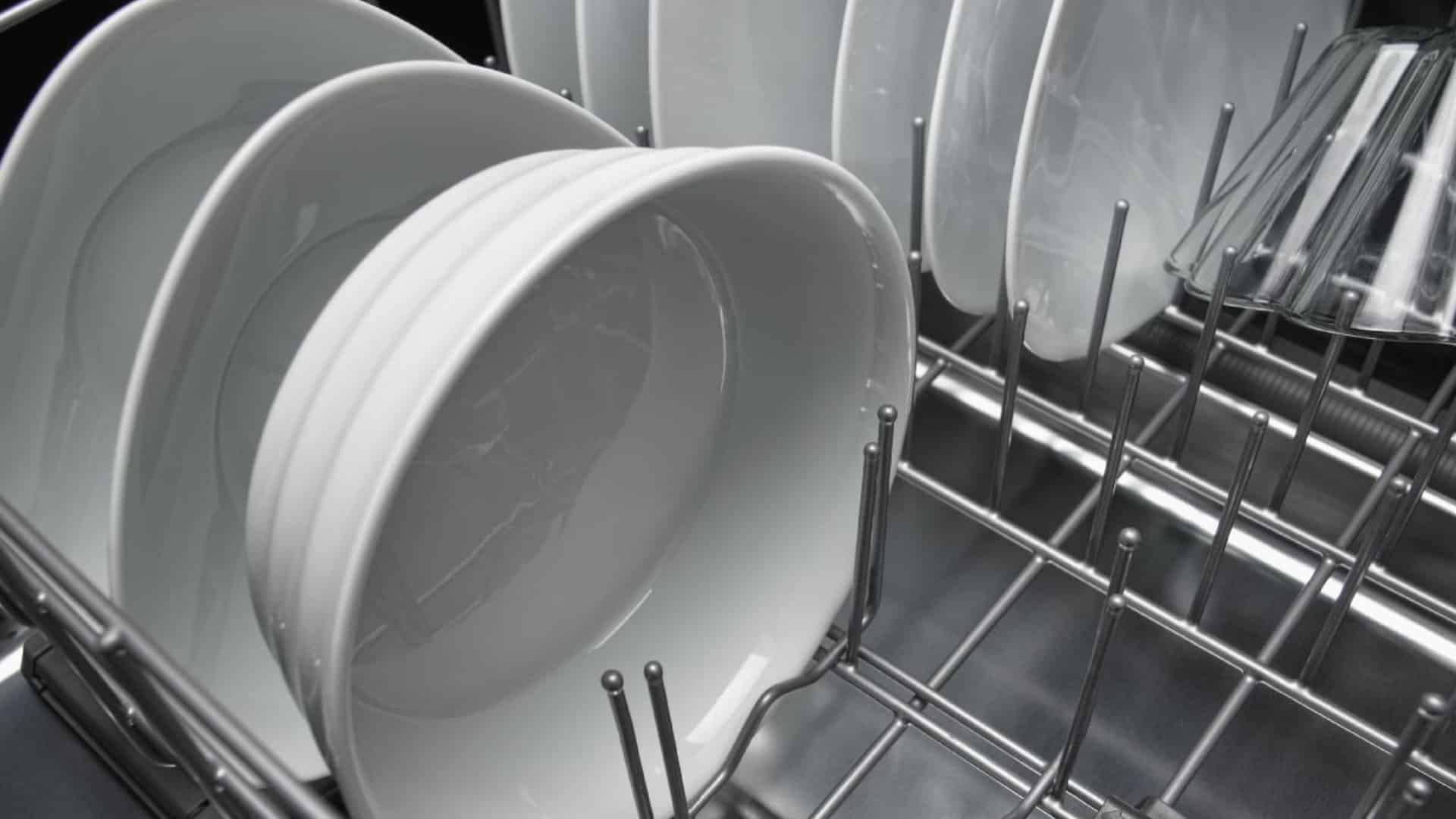
How To Fix a KitchenAid Dishwasher That Isn’t Draining
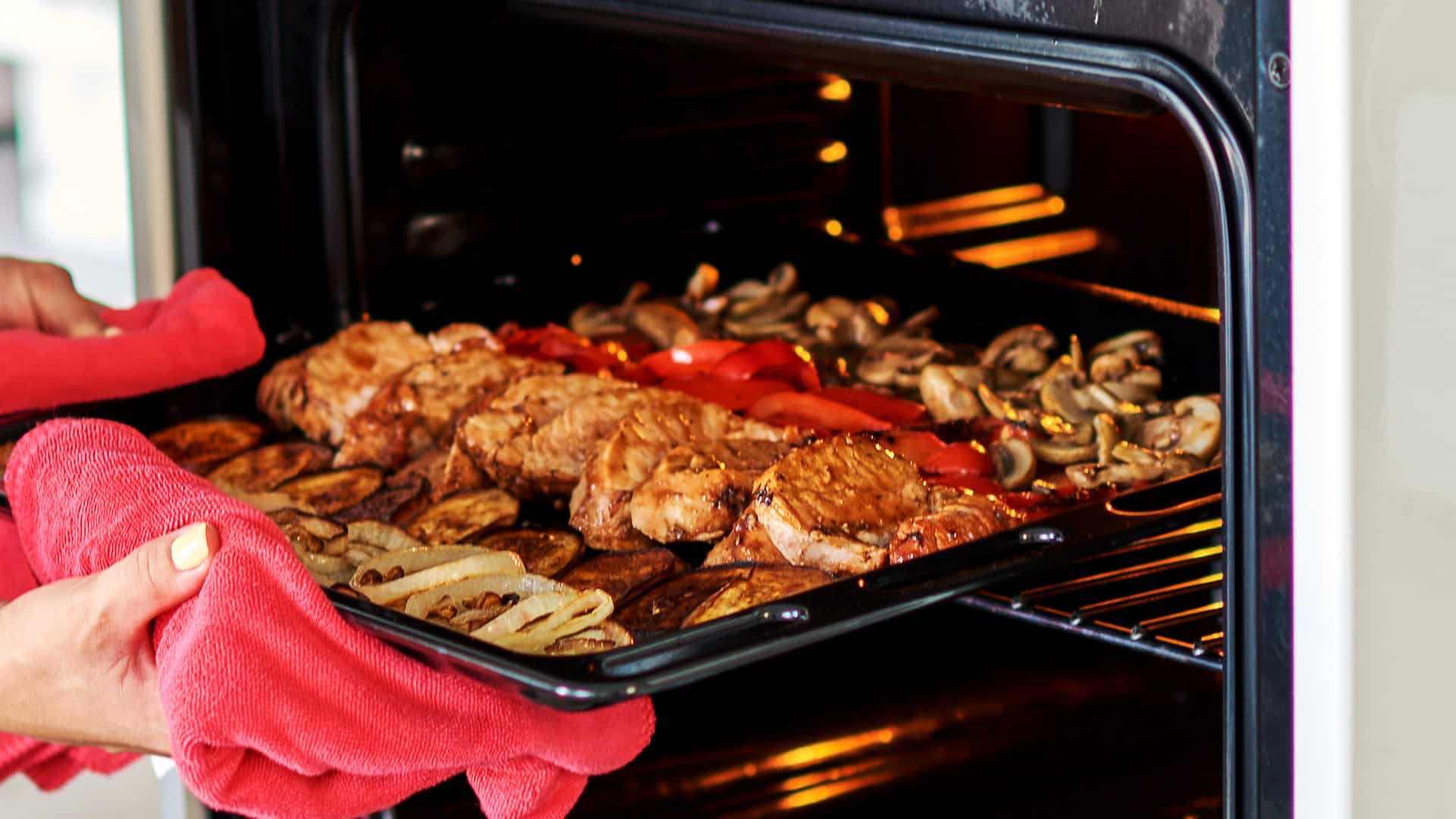
GE Oven F2 Error Code: Causes & Solutions
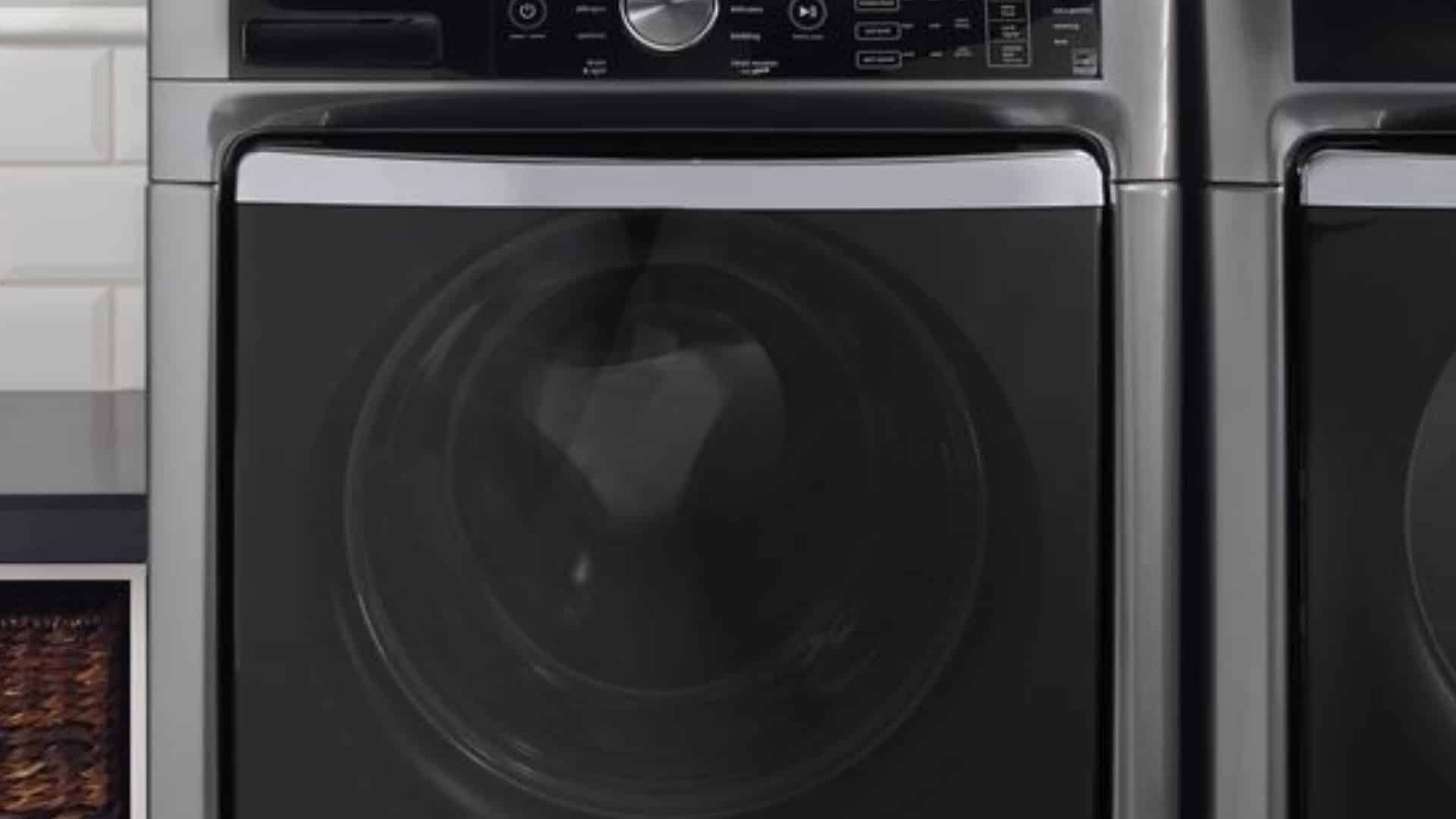
Maytag Washer Not Spinning? 5 Simple Solutions
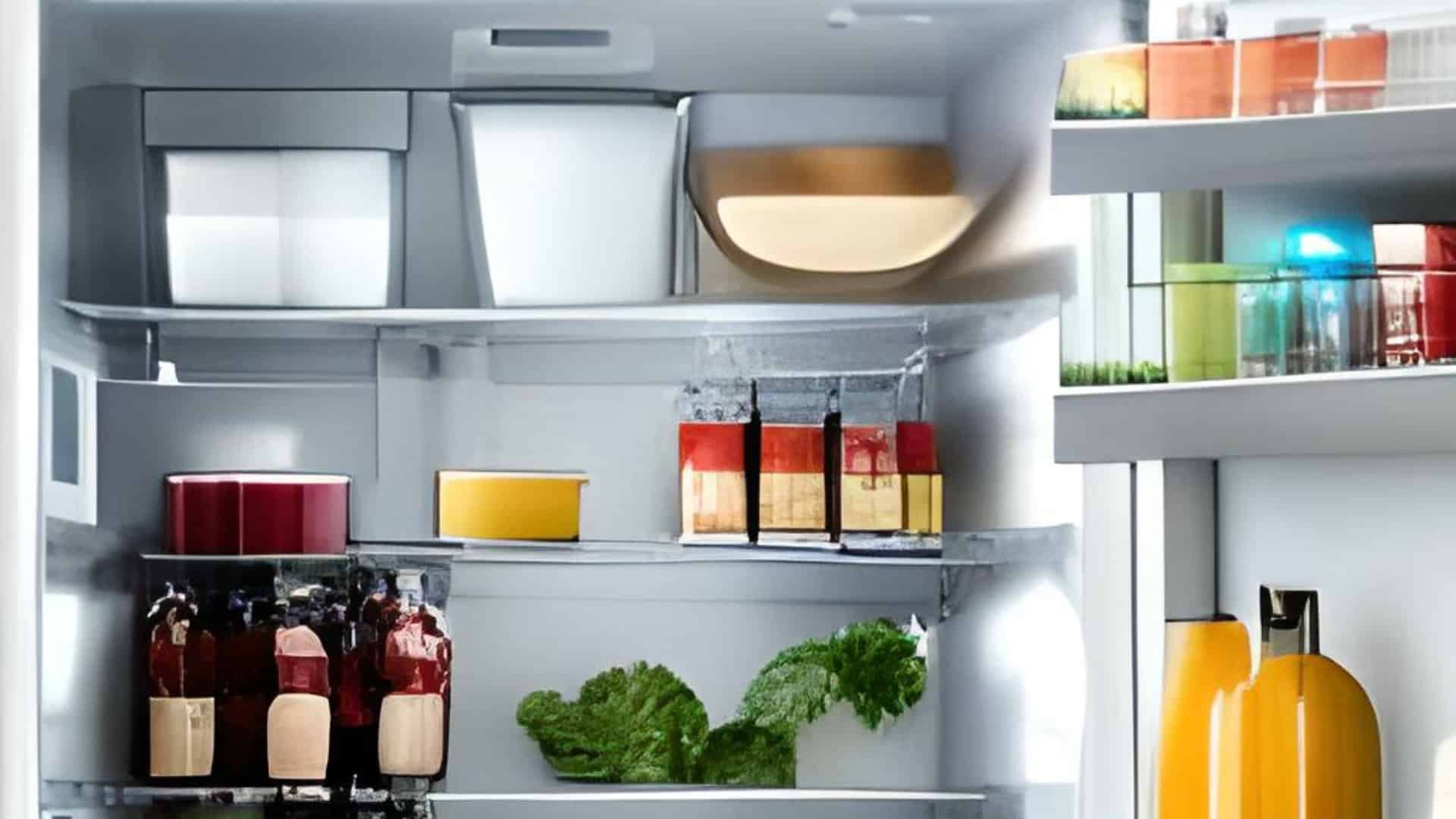
Why Is Your Refrigerator Not Cooling?
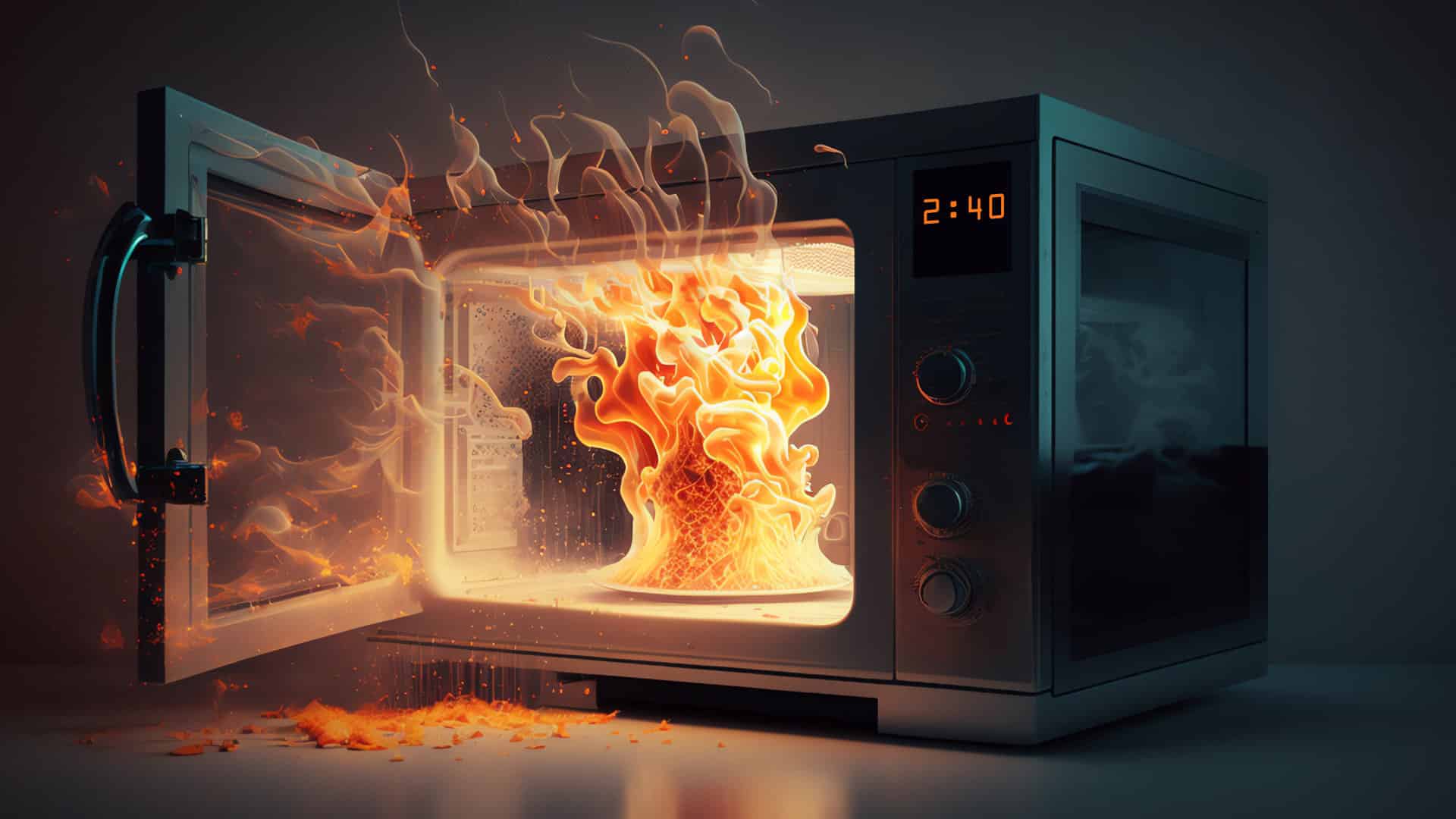
How to Get Rid of Burnt Smell in Microwave
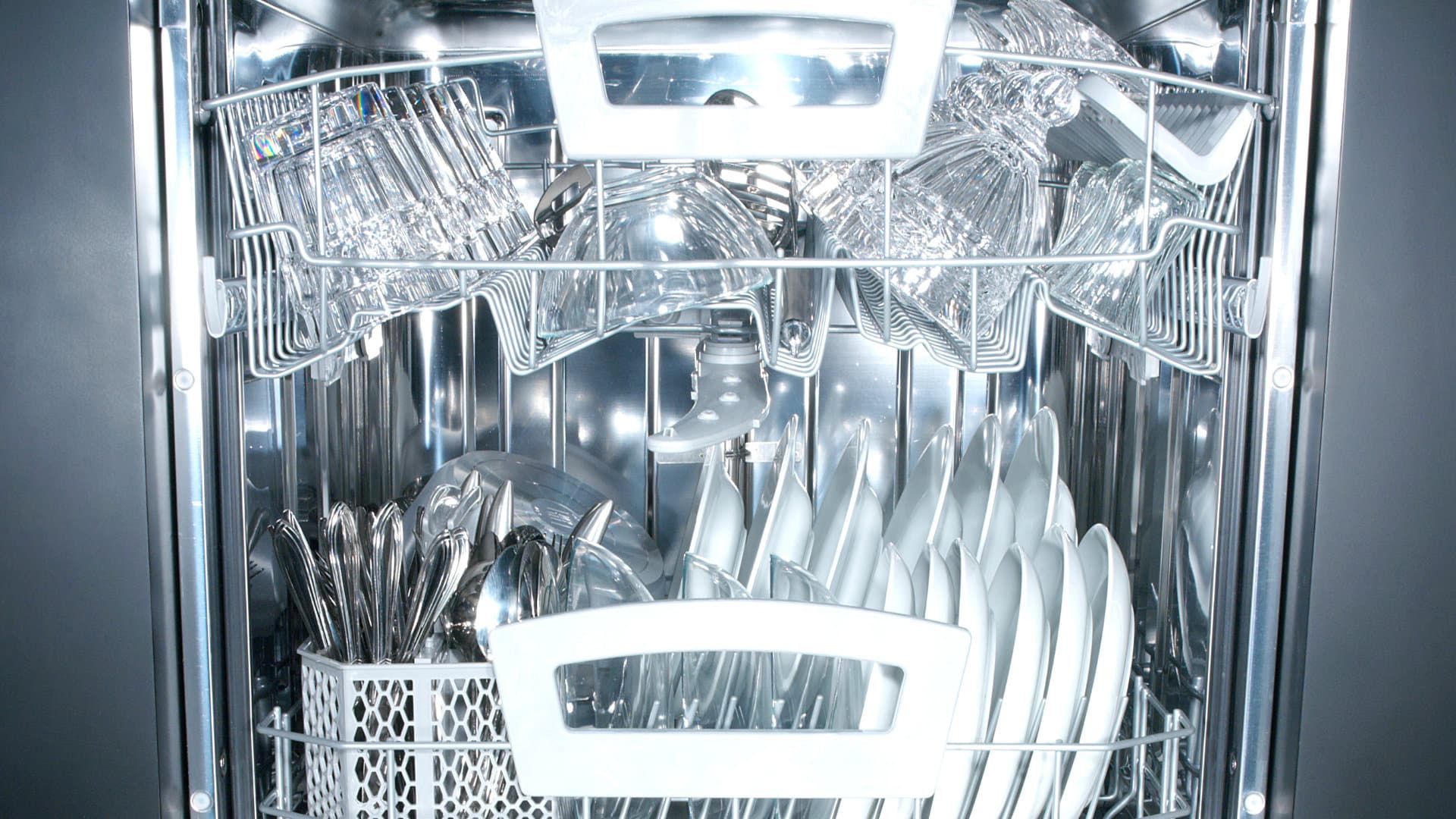
How to Fix a Dishwasher Not Cleaning Properly
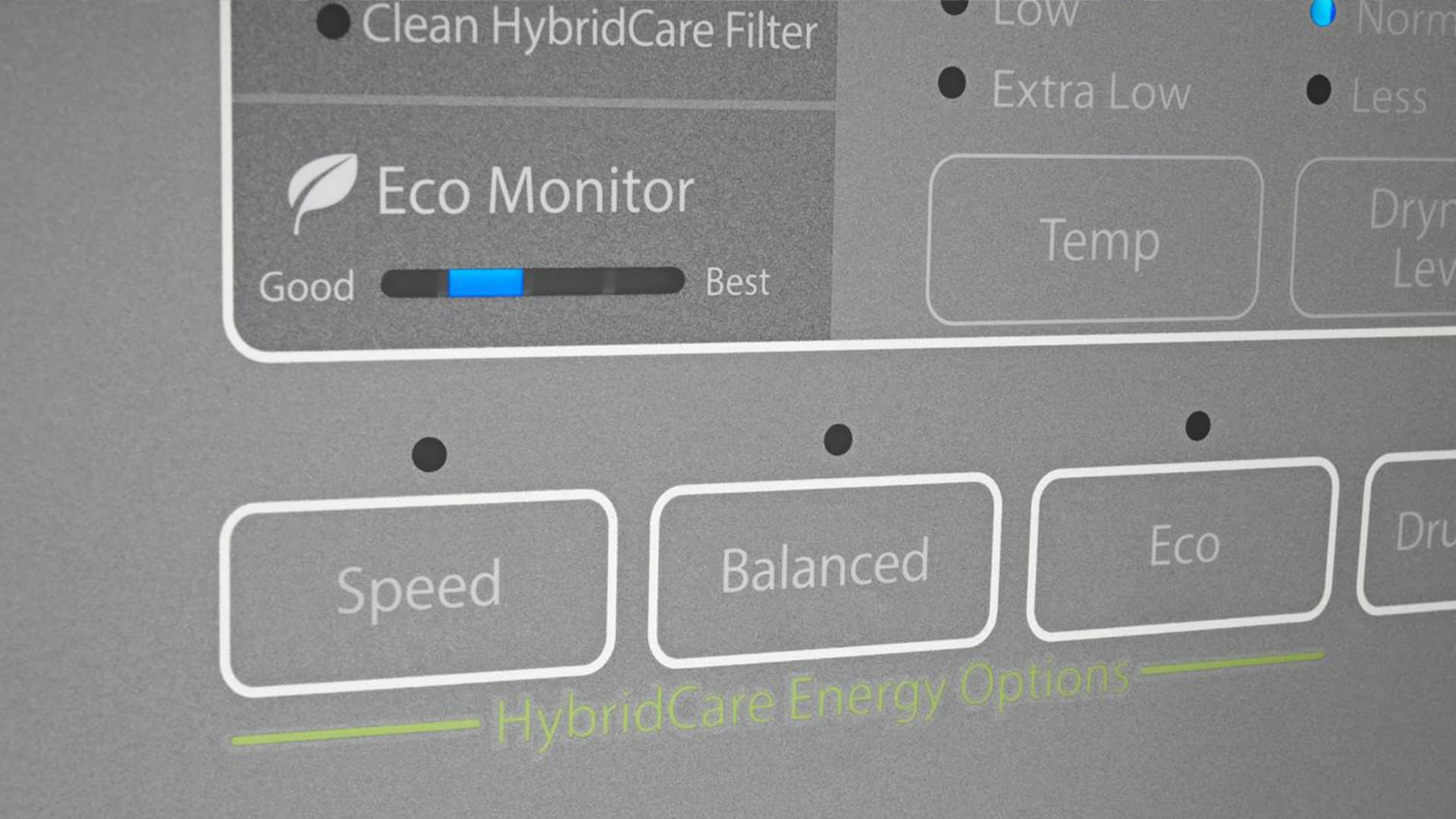
How Much Energy Does My Dryer Use?
